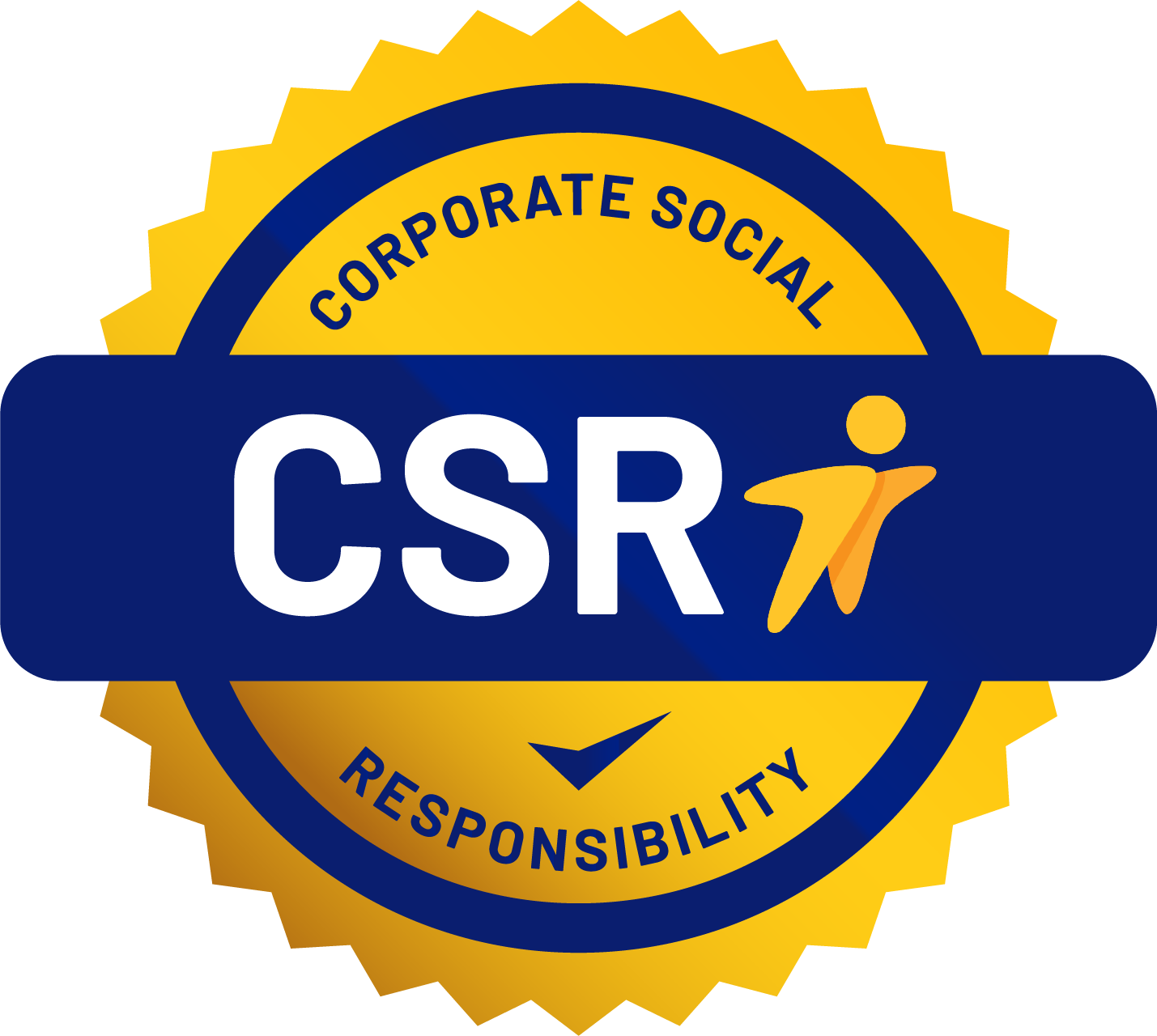eScreener Login
Contact Us
Address
3075 14th Avenue, Suite 213
Markham Ontario
L3R 0G9
Toll Free
Telephone
Fax
Contact Us or Call Us
Toll Free
1-888-874-1114
Hire Performance Inc. Supports Corporate Social Responsibility

Hire Performance Inc. is dedicated to corporate social responsibility, and we’re dedicated to supporting causes that help make a positive impact on the world. We recently donated to YRES, a non-profit organization that provides educational services for anyone wanting to learn, from K-12 to seniors.
Supporting education relates to our overall goal to improve employment opportunities and contribute to an all-around more prepared workforce.
Additionally, we also hold an annual holiday food donation drive for the Markham Food Bank, aiming not to limit our efforts to food alone. We actively research and identify essential needs in our community, such as oral hygiene products like toothpaste and toothbrushes, as well as feminine hygiene products like pads and tampons. This approach helps us do our part in contributing to alleviating food insecurity and addressing other crucial needs in our community.
These initiatives fall under our commitment to corporate social responsibility (CSR). You may have seen that term more often lately and don’t know what it means. Or perhaps you’re a business owner wanting to take steps to become more responsible.
Either way, keep reading to learn more about CSR, why it’s so important, and how your business can embrace it.

What is Corporate Social Responsibility (CSR)?
CSR is an umbrella term to describe a range of possible initiatives that all strive to create a positive impact. An organization may wish to promote clean energy, provide more opportunities to underserved communities, or promote food security in their local communities.
Four Types of CSR
What does it mean when a corporation says they’re focussing on becoming more responsible? There are seemingly endless specific ways a company can become more responsible, but most of them fall into the below four overarching categories:
- Environmental responsibility: A popular category of CSR is an initiative aimed at improving the environment, which may range from net zero emissions goals to support nonprofits planting trees. This category of CSR is a wise choice for any organization.
- Philanthropic responsibility: This category focuses on contributing positively to society overall, often taking the form of donating to non-profit organizations such as YRES. Providing employees with better-than-average benefits can also fall under this category.
- Ethical responsibility: Organizations should all strive to meet this category, which encompasses non-discrimination hiring practices, providing industry-leading compensation, and transparency in operations.
- Financial responsibility: Financial responsibility can be considered a core pillar of CSR that ties the above three categories together. Any initiatives that fall under the other categories should be backed with thorough financial investments, donations, or product research. All related initiatives should also be transparent and disclosed to the investors or the public.
Why Should Corporations Focus on Social Responsibility?
Corporate responsibility goes well beyond making a positive impact on the world, although that alone is certainly enough. There are other possible benefits for corporations that opt to focus on corporate responsibility, such as:
- Mitigate risks: CSR initiatives often help you prevent other risks by focusing on transparency, accountability, and responsibility. For example, conducting an Ontario criminal record check helps identify any potential problems with candidates before they lead to detrimental incidents.
- Engage employees: Employees are likely to become more loyal to companies they believe in, and CSR initiatives go far in engaging this type of loyalty. The result is higher retention, lower turnover, and possibly enhanced productivity.
- Enhanced investor relations: More and more investors are looking towards companies that undertake CSR initiatives. Not only are responsible companies more appealing to potential customers, but the inherent transparency and accountability make an organization a less risky investment.
- Build a positive brand image: Committing to specific causes and then taking periodic steps to advance them helps cultivate a positive brand image in the public eye. The results of being viewed positively can ripple throughout your organization, from making more sales to securing better agreements with suppliers.

How Corporations Can Be Responsible
Are you a decision-maker for an organization and striving to become more responsible? We’ve been working on our campaigns for a while, and we’d love to give you a few quick tips to get started with a robust CSR initiative.
Commit to Specific Causes
There are a massive number of possible causes to include in a CSR campaign. Even though it can be tempting to choose a lot of them, doing so can backfire if you make commitments to them but don’t take any obvious steps to advance them.
Instead, focus on causes that are somewhat related to the business model and resonate with stakeholders, investors, and customers. For example, Hire Performance is committed to improving the workforce, such as donating and supporting
local organizations like York Education. YRES's mission is related to our own, making them a perfect non-profit to support.
What causes relate to your organization, community, and values? Take some time to pick a few instead of going for every option under the sun.
Bring Partners on Board
Very few, if any, organizations are an island — you likely have partners, vendors, or suppliers that you frequently transact with. Ask if they want to team up to support your given CSR campaigns.
Working together to donate larger amounts to causes both organizations are passionate about can go far both for public image and for advancing the specific cause.
Explore opportunities to include these joint CSR campaigns for the good of your industry, both organizations and surrounding communities.
Be Tactful with Donations
A common way to go for CSR campaigns is donating to non-profit organizations or other philanthropic giving. However, these donations are still taking away from revenue — that’s partially why they’re so respected by the general public.
Don’t go overboard and bite off more than you can chew. If you commit to donating to a dozen non-profits every year, you might overestimate your ability to back that up as the years carry on. Then, your efforts end up backfiring entirely if you fail to honor your commitments.
So, be strategic in the number of organizations and causes you wish to donate to. Steady, reliable donations over time will go much further than a lot of donations one year and then little to none the next.
Create a Code of Ethics
Adopting or creating a code of ethics solidifies the overall vision and purpose of CSR campaigns. Governance documents are common and often required, but you can go a step further and detail specific commitments to corporate social responsibility.
For example, conducting an initial and recurring Canada criminal record check for every employee can be part of a dedication to creating a safe workplace.
Mistakes to Avoid with CSR
You can make some critical mistakes when creating and pursuing advancing CSR for your company. Let’s quickly touch on a few of these mistakes so you can avoid them entirely, which include:
- Unrelated initiatives: Specific initiatives, causes, and nonprofits should relate to your industry or community in some way. There are certainly exceptions to this rule, but it’s a good general guideline to keep in mind. It makes sense to support your own industry and local area, which may end up benefiting your company in the long run.
- Too much marketing for CSR: You’ll need to do some PR and other marketing to let the world know about your CSR campaigns. Making an initial commitment and then never releasing updates will almost certainly backfire. However, don’t overdo it — you don’t want it to come off like you’re only doing CSR for marketing purposes.
- Go beyond legal requirements: You might face some regulatory or industry standards that happen to line up with CSR campaigns. For example, non-discrimination hiring practices are likely a requirement. But you can go beyond the letter of the law and expand the legally protected demographics to create an inclusive environment.
Support Your Workforce with Hire Performance Inc.’s Background Checks
Hire Performance Inc. is dedicated to advancing employment opportunities, supporting our community, and helping businesses hire the best candidates possible.
We’ve built a cloud-based, on-demand background screening service to help your business rapidly screen and hire qualified candidates. Whether you need a Canadian criminal record check or work verification — or anything in between — we’ve got you covered.
Ready to see how our platform can help your organization?
Learn more about Hire Performance today.

Industry Leading Technology for Background Checks & Screening
eScreener uses Kount Identity Verification™ technology to verify identity with confidence. This technology cross checks applicant information against Equifax and 3rd party data sources to validate an identity and to determine whether that identity has been reported as misused or associated with potential fraudulent activity. This is done in real time by accessing millions of records, providing instant results in our eScreener.
WHY CHOOSE HIRE PERFORMANCE?
Pre-Employment Screening Benefits
Our industry leading expertise and cutting edge technology help organizations detect potential risks such as resume fraud, criminal convictions, and past terminations.
Start protecting your company now.
We want background screening to be a seamless process for you. We’ve developed eScreener to allow quick turn around time and make report information accessible from anywhere to clients around the globe!

Start protecting your company now.
We want background screening to be a seamless process for you. We’ve developed eScreener to allow quick turn around time and make report information accessible from anywhere.

CONTACT US
Address
3075 14th Avenue, Suite 213
Markham Ontario
L3R 0G9
Toll Free
Telephone
Fax
Hours of Operation
Mon – Fri: 9am – 5pm EST
SERVICES
INDUSTRIES
ABOUT HIRE PERFORMANCE
Hire Performance Inc. (HPI) is a Canadian owned and operated pre-employment screening company servicing the globe, specializing in providing reference checks, criminal and credit checks and our paperless eScreener platform. Screening for the best people is integral to the success of any organization – Hire Performance is dedicated to helping you do just that.
HPI NEWSLETTER SIGN-UP
Sign up to the HPI Newsletter and get updates directly to your inbox!
All Rights Reserved | Hire Performance Inc. (HPI) | Privacy Policy | Website Design by Plasmid144 Digital Marketing

All Rights Reserved | Hire Performance Inc. (HPI)
Privacy Policy | Website Design by Plasmid144 Digital Marketing








